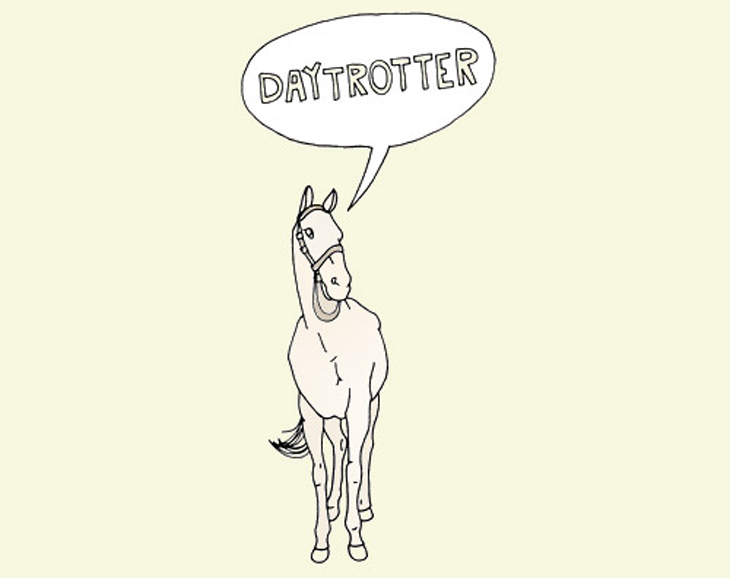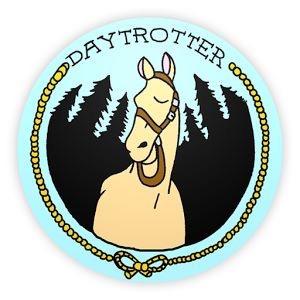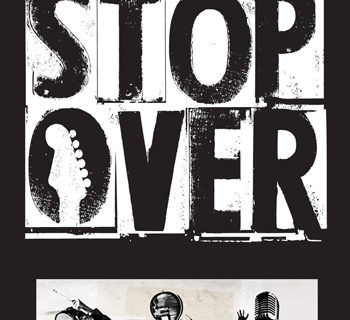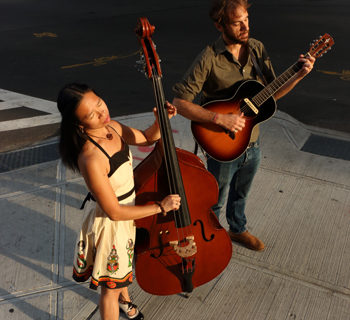It’s been there for 10 years now, and yet every time someone learns of it, they’re caught off-guard as if discovering a password-only party going on in their neighborhood. Locals have seen the tour buses parked in front of the place, the instruments, and the musicians; still, even in its own neighborhood, DayTrotter has remained low-key. Now, the same can’t be said about the artists parked upfront.
Based in Rock Island, Illinois, DayTrotter plays host to top emerging artists, recording their sessions to analog tapes and uploading them online. Even household legends like Bon Iver, Alabama Shakes, Mumford and Sons, and The Lumineers have stopped by during their tours to record some songs.
So how does it work, this “DayTrotter” thing? Almost every day, a touring band drops by the studio to record four to five live sessions, then, gets right back on the road. The only catch is the sessions must be immaculate—this means crisp live sessions free of errors and overdubs. Otherwise, the song must be redone from the top. The final result is a live version of an artist’s song, with improvisations and additions recorded in high quality.
For example, Grimes recorded a five-minute version of their three-minute song, “Crystal Ball,” at DayTrotter, changing it up with an improvised intro and chorus. The track’s quality is nearly identical to its studio version; it’s a treat for Grimes fans, especially those that fancied the song.
The live sessions are recorded on an Otari MX 5050 analog tape machine that gives the tracks a vintage vibe. The studio’s tech encourages the artists to try new things during their sessions, making the recordings artifacts of visiting bands’ growth and experimentations between albums. Every day, a new session is uploaded on DayTrotter for a community of 100,000 unique visitors.
The man behind DayTrotter is Sean Moeller, who created it in 2006 “to produce artists, especially artists people won’t know,” adding, “I want to introduce people to good music,” in an interview with PopMatters. After the first two sessions, with Catfish Haven and Someone Still Loves You Boris Yeltsin, were successful, Moeller and his team saw DayTrotter’s potential.
“What’s funny,” he noted in an interview with 97xRadio, “is we’re right across the street from the U.S. Bank building, and when I go in there to do my banking, the tellers are always like, ‘we always see the buses, we always see the vans, and we just love watching the people going into the building.’”
And it’s not like only the top artists in the world are dropping by. DayTrotter prides itself in finding new music. By communicating with other artists, the company learns of quality acts not already being promoted by the radio or MTV. This process allows DayTrotter to find new prospects for sessions and build meaningful relationships with them—those relationships being the core of the company’s strength. “Ultimately, it’s built around relationships,” he emphasizes. “Most people that I’ve done things with over the years, we’ve met through this thing.”
Community at DayTrotter is not limited to just building bonds with other artists; DayTrotter is itself a culture—one translucent in its own eccentricity and creative direction.
Vampire Weekend had only nine songs completed when they were invited to record at DayTrotter. They performed for locals after at the pizza parlor below the studio, and a few months later, they returned for more.
Community at DayTrotter is not limited to just building bonds with other artists; DayTrotter is itself a culture—one translucent in its own eccentricity and creative direction. The website’s cartoonish portraits of the artists is also a feature, handled by one of the company’s oldest residents Johnnie Cluney, who did not even have a computer when he first started drawing for them in 2006. “I did the drawings and put them in a manila envelope in my mailbox when I was finished with them,” Cluney told Paste Magazine. ”
Cluney’s art specializes in the intimate details of the face, his belief being that they show what kind of lives we’ve led. So far, he has completed more than 5,000 pieces, drawing at least three portraits of the artists and bands who visit the studio every day for the last 10 years. His use of bright, Caribbean colors allows his cartoons to glow in a “Yellow Submarine” fashion. Cluney believes that his style of drawing is amongst many components that sets DayTrotter apart from every other competing website.
Another thing that sets DayTrotter apart (and perhaps keeps it off the radar) is the site’s anti-internet design, which consists mostly of music categories with updates rather than meticulous menus designed to kiss up to search engines. Instead, DayTrotter spreads more organically, through social media and word-of-mouth.
For the musicians themselves, a visit to DayTrotter means a lot, as ARMS bassist Matty Fasano told The Atlantic. “When they do get to do one, it's a big deal that they announce to absolutely everybody. I take it as the moment when you start taking a band seriously—when they've done a Daytrotter.”
One shouldn’t worry about DayTrotter being drowned out by the vast selection of music out there or its own eccentricity. More than 21,000 DayTrotter members pay $2.99 per month just to have access to these exclusive treats, including the ability to download and listen offline or watch live video streams of the sessions.
But times are changing for DayTrotter. Mueller left the company in August but retains a minority share, leaving the leadership to Ben Crabb, a former assistant manager at Rugged Records who also made his name in the Quad Cities by hosting live shows and concerts. Fans shouldn’t worry, however, according to Wolfgang’s Vault CEO and now majority shareholder in DayTrotter, Bill Sagan, who assured, “Daytrotter has been left in good hands” in an interview with Quad City Times, calling Crabb “an outstanding curator of musical talent.”
We also hope that Daytrotter.com continues to embrace its founding principles: quality music, superb work and strong relationships with the artists that visited its studio.













